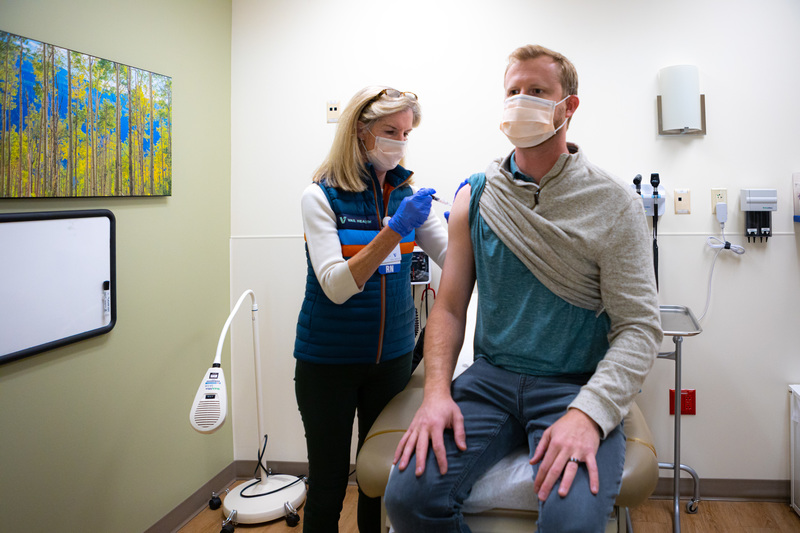NOTE: Most health insurances cover the cost of flu vaccines. For uninsured patients, the cost of a flu vaccine for ages 6 months to 64 years is $59, and the cost for a high dose flu vaccine for uninsured patients at 65+ years is $102, with a 15% discount for payment at time of service.
Below is a list of locations throughout Eagle County to receive a vaccination.
Vail Health Locations
Colorado Mountain Medical - Avon, Dillon, Eagle, Vail
(970) 926-6340 | CMMHealth.org- Flu vaccinations are administered at Colorado Mountain Medical locations on a walk-in basis for adults, children and babies beginning at 6-months old.
- Vaccinations are available beginning mid-September and administered as supplies allow.
- You do not need to be an existing patient to receive a flu or COVID vaccine at Colorado Mountain Medical.
- Vaccinations are available Monday-Friday at Colorado Mountain Medical locations in Avon, Dillon, Eagle and Vail.
- Most insurances cover the vaccination cost at a regular clinic, provider office or pharmacy.
- For uninsured patients, the cost of a flu vaccine for ages 6 months to 64 years is $59, and the cost for a high dose flu vaccine for uninsured patients at 65+ years is $102, with a 17% discount for payment at time of service.
Edwards Pharmacy - In the Shaw Cancer Center
(970) 569-7676 | ShawCancerCenter.org/Pharmacy
Vail Pharmacy - In Vail Health Hospital
(970) 479-7253 | VailHealth.org/Pharmacy
Non Vail Health Locations
City Market - Vail, Avon, Eagle
Walk-ins only | CityMarket.com/FluMon. - Fri. 12pm - 7pm | Sat. 10am - 5pm | Sun. 10am - 4pm
Costco Pharmacy - Gypsum
(970) 328-7610 | Costco.com/Pharmacy*Appointments only
Eagle Public Health - Avon & Eagle
Avon (970) 328-9813, Eagle (970) 328-8840 | EagleCounty.us
Mountain Family Health Center - Edwards
(970) 945-2840 | MountainFamily.orgVail Valley Pharmacy - In Edwards Village Center
(970) 569-4150 | VailValleyPharmacy.comWalgreens - Avon
(970) 949-8097 | Walgreens.com/Avon*Appointments only







